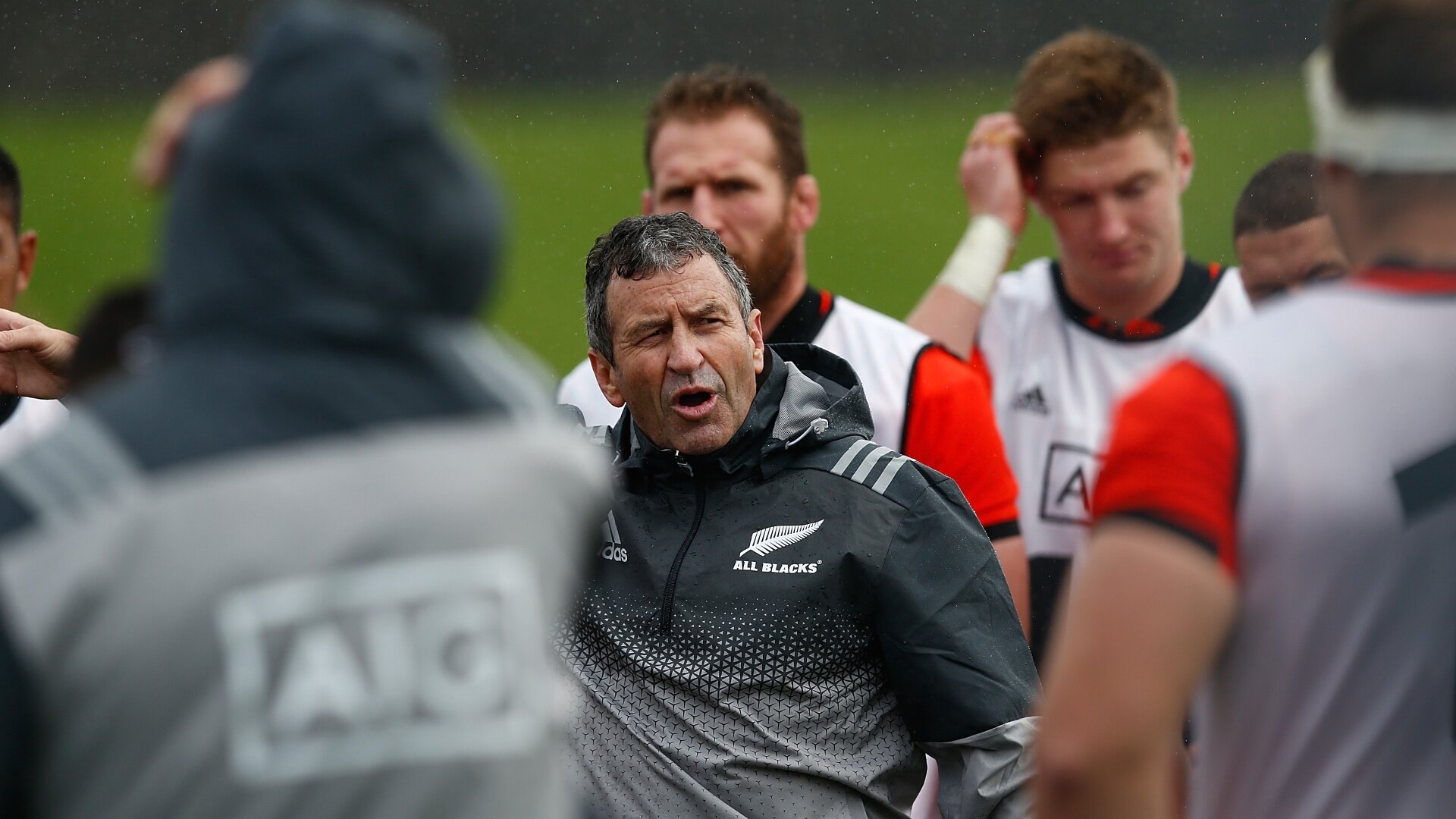Wayne Smith is a win for the Black Ferns but his service needed elsewhere by NZR

The Black Ferns’ unexpected gain only underscores the significance of the All Blacks’ continued loss.
Not for the first time in his storied coaching career, Wayne Smith has answered New Zealand Rugby’s (NZR) call.
The Black Ferns’ prospects of performing creditably at this year’s World Cup have been enhanced immeasurably by Smith joining their staff as a technical coach.
Few people in rugby history have ever boasted expertise to match Smith’s. Whether it be culture and self-esteem, national pride, breaking down opposition strengths and weaknesses, tactical and technical coaching or just simply being a great person to be around, Smith has brought so much to so many teams.
Down in Christchurch, for instance, Smith is still credited for making Canterbury and Crusaders rugby what it was and continues to be. He, along with Gilbert Enoka, created a way of doing things that current custodians such Scott Robertson draw from to this day.
While the legacy lives on down there, the All Blacks haven’t been the same since Smith left for good back in 2017.
It takes a village to coach and maintain a great All Blacks team.
Everyone contributes across the backroom staff, but the input of some people will always be more significant than others.
In Steve Hansen as the absolute supremo and master manipulator, you had someone whose ruthless competitiveness created the right environment for success to happen. But where Hansen moulded minds, Smith was the man who turned athletes into elite rugby players.
Such was his vision and understanding, that the All Blacks were always at the cutting edge of the game.
Whether it was on attack or defence, Smith spotted or set trends that created an era of dominance.
One wasn’t as effective without the other. Hansen always put the team and the outcome first, without maybe having the technical acumen of some, while Smith was so invested in the players and their welfare and development that he perhaps lacked the killer instinct to be the man in charge.
It made for a formidable partnership and some spectacularly successful All Black sides.
With the best will in the world, no-one in the current coaching staff comes close. Hansen, and let’s be fair about this, dominated world rugby. He intimidated people and set agendas and made sure the All Blacks got their way more often than not.
And in the background you had Smith, a man widely thought of as having the smartest rugby mind around.
When you think about it, it’s hardly a surprise that the All Blacks have become an underwhelming side without them.
The Black Ferns more than underwhelmed in 2021 – they were awful.
They looked uncoached, unhappy and ill-prepared for what they encountered on last year’s tour to Europe.
It was a far cry from the standard of excellence set by those running our national sevens programme, casting enormous doubt over the capability of Glenn Moore and those coaching the 15 a-side equivalent.
That part of the problem has been solved. There clearly remain cultural issues within the Black Ferns squad and questions over Moore’s role in that, but the coaching bit is sorted.
In securing Smith’s services, NZR have ensured that players and fans alike will have the confidence of knowing a smart man is back in the room.
Time will tell if that’s enough to win the Black Ferns a World Cup, but you’d have to say their chances have been boosted enormously by this appointment.
For Smith’s part, honouring his late friend Laurie O’Reilly – who many regard as the architect of women’s rugby in New Zealand – played a significant part in being coaxed back.
But, as Smith has shown in the past, he does like to feel needed.
There were various occasions when it appeared as if his association with the All Blacks was over, only for him to be wooed back one last time.
Few people possess Smith’s passion for the black jersey, affection for the game and desire to see New Zealanders succeed on the world stage. It’s part of what has endeared him to players for generations.
Well, if he can come to the Black Ferns’ aid in their time of need, NZR should be asking if he could do the same for our ailing All Blacks.
I know I’d sleep easier knowing Smith was back on the staff.


























Itd be great to have him back on board in some capacity such as mentoring coaches (Tony Brown could sure do with some help) but I thought hed made it quite clear he was done with coaching and went home to be close to his parents.
Did he? He has been the director of rugby for Kobelco Steelers since 2018. So, he hasn't been retired. Also, why would it matter if he changed his mind?